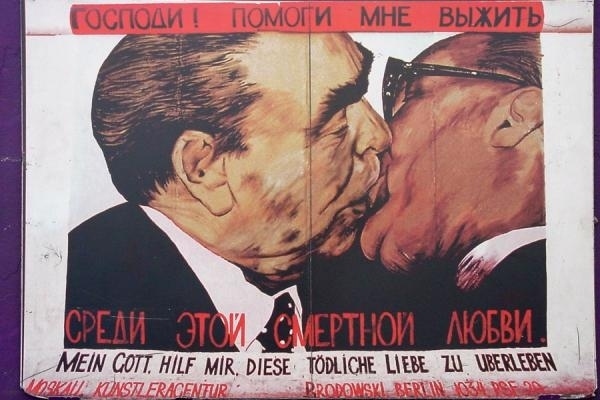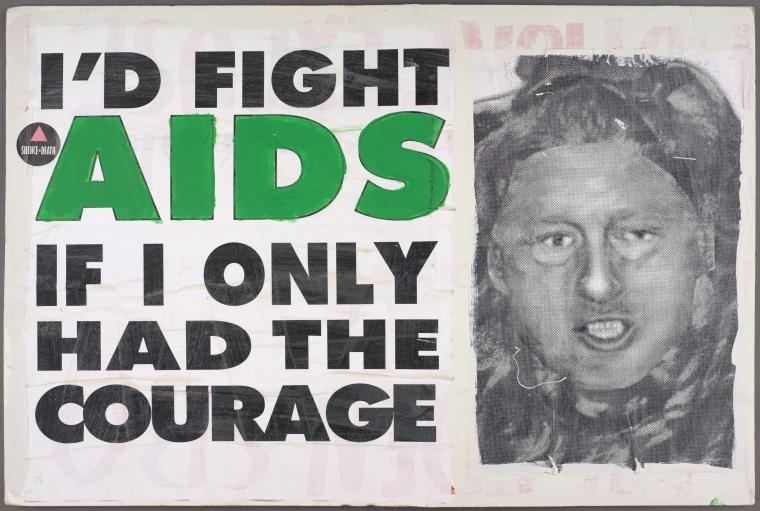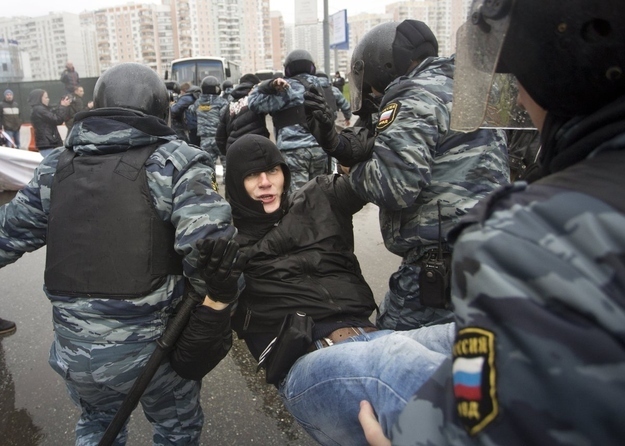(In)Visibility is a key issue for advocacy

Russia's LGBT movement has grown rapidly during the past decade. The horror stories of violence and discrimination are certainly true, but you may be surprised to find out how much is allowed in Russia today. The "movement" itself is more like movements: still decentralized, many regions aren't represented during national convenings, many groups have little international visibility, and there are personal quarrels between various factions about vital issues like strategies, foreign funding, media work and outreach. But their work is moving forward despite the government's "official" policies that ignore many concerns facing LGBT persons.
Projects like the Queer Pride Fest in Saint Petersburg or Children-404 continue to challenge the invisibility of LGBT people. You can support the forthcoming Children-404 documentary by donating here. This documentary will be extraordinarily powerful.
I should tell you that homosexuality in our country has been overcome once and for all but not entirely. Or, entirely but no completely. Or else, entirely and completely but not once and for all. What do people think about now? Nothing but homosexuality. That and the Middle East. Israel, the Golan Heights, Moshe Dayan. So, if they chase Moshe Dayan off the Golan Heights and the Arabs make peace with the Jews? What will remain in the peoples' heads? Nothing but homosexuality, pure and simple.(Venedikt Erofeev's Moscow - Petushki, 1969)
The genius drunk and vagabond Erofeev wrote this text in a country that criminalized same-sex relations and limited any and all public debate about sex. "Sex doesn't exist in the Soviet Union," they used to say, and Russia's psyche remains committed to that "ideal." Is the society more dangerous to the individual than the state?
"I'm more afraid that my friends and family will find out than the law," says a young man in a Times article about gay life in Russia in February 1993 (months before same-sex relations between men were decriminalized).
Today, the resurgence of government interest in influencing morals, conduct, and "propaganda" of ideas in Russia led to an incredible interest in LGBT rights: everyone's talking about it, there is "nothing but homosexuality" on people's minds, because--to use Erofeev's logic--it's time to overcome it once and for all but not entirely. How will the LGBT organizations and movements use this moment?
Invisibility and AIDS: a Soviet example
In November 2013, I spent some time with Oleg Klyuenkov and Lyudmila Romodina from the Arkhangelsk-based LGBT organization Rakurs on a visit to Portland, Maine. Arkhangelsk has a vibrant sister city relationship with Portland, dating back to the World War II days when the Russian port received convoys of lend-lease goods from the U.S.
We wanted to celebrate the official partnership, which marked its 25th anniversary, but also use the opportunity to learn about Portland's struggles and to discuss Arkhangelsk's challenges. Arkhangelsk was the second region in Russia to adopt a regional ban on "propaganda" of homosexuality, though it also became the first region to repeal its local ban after Russia adopted the federal law. So we had a lot to talk about, and we did.
But we also went places, thanks to Portland's hospitality and the ingenuity of our selfless host, local artist Robert Lieber. One day, we browsed through the University of Southern Maine's LGBT Collection, where we saw two leaflets about the AIDS crisis in the Soviet Union, produced in 1990 by ACT UP (AIDS Coalition to Unleash Power) and Queer Nation. One of the flyers says:
"FACT: The Soviet Government claims there are 44 people with AIDS and 500 with HIV IN ALL OF THE SOVIET UNION!!" [authors' emphasis]
The second leaflet from the archives is a letter to USSR's then President Gorbachev and President George H.W. Bush, calling on both governments "to immediately take necessary measures for the reworking of legislation in the direction of humanitarianism and freedom."
The letter says that LGBT Soviets are "forced to live underground as a result of the heterosexist government sexual politics and society's homophobia." Some of these themes have re-emerged during the international and domestic debates over Russia's recently enacted law banning the "propaganda" of nontraditional sexual relations to minors, which Vladimir Putin continues to defend, noting that "a ban on something and a ban on promoting that thing" are totally different things.
At the time these leaflets were produced, the Soviet Union's criminalization of same-sex relations for men (official penalty: up to 5 years in prison) hadn't been applied for half a decade. ACT UP's main point was that failure to recognize the specific needs of your own citizens translates into harmful, even disastrous government policies.
Today, UN AIDS says the number of people living with HIV in Russia (990K) is larger than in the higher-populated Brazil, China, or Indonesia. The annual number of new infections has decreased dramatically in recent years even though Russia's "AIDS investment strategy is not optimized to its epidemic patterns." Translation: the government doesn't understand how to spend money to effectively serve the affected population whose needs remain invisible because there is very little public discourse on AIDS and HIV-prevention in Russia.

ACT UP in America: Invisible people everywhere!

The leaflets about the situation in the Soviet Union were a tear drop compared to the ocean of ACT UP's activism "at home" in the 1980s and 90s. If you're in New York, you can go visit the place where Sex and the City's Carrie Bradshaw got married (or was planning to get married?--I dunno) to see the exhibit Why We Fight: Remembering AIDS Activism, at the Stephen A. Schwarzman Building of the New York Public Library.
The posters, graphics, flyers, and street actions coordinated by ACT UP repeated the core message of the two Soviet flyers we saw at the University of Southern Maine: the government's not doing enough, it's misinformed, misguided, unwilling to accept the reality or expertise of the people who know how to confront an AIDS epidemic.
The Wizard of Oz-inspired art by ACT UP is particularly telling:
"I'd fight AIDS if I only had a heart" -- Rudy Giuliani, teach safe sex in schools.
"I'd fight AIDS if I only had a brain" -- George Pataki, Medicaid cuts kill.
"I'd fight AIDS if I only had the courage" -- Bill Clinton, support AIDS cure project.
"I'll get you my pretty & your T-cells too!" -- this one is from a wicked witch played by Newt Gingrich.
Check out the entire digital collection if you're visiting your aunt in Dubuque and can't see the exhibit, which closes on April 6 in New York.
It's precisely what Vladimir Putin needs: a heart to go back to his old self (his government shut down federal anti-"propaganda" bills in 2003, 2004, and 2006), a brain to implement policies informed by the most advanced, tech-savvy specialists of the day, and the courage to meet with LGBT activists and listen to their concerns.
November 2013: LaSky HIV/AIDS project in Saint Pete attacked

While the representatives from LGBT rights group Rakurs were in Maine, Russia celebrated the Unity Day on November 4. The holiday is relatively new and is mostly known for large-scale privately-organized rallies by ultranationalist Russians, most notably in Moscow and Saint Petersburg.
In Saint Pete, one day ahead of the rallies two individuals came to the office of LaSky, shot an LGBT activist in the eye with a pneumatic gun, attacked other attendees, and fled the scene. They are still at large, and the victim's lawyer has requested that the allegedly homophobic motive be considered by the police during the investigation. It probably won't.
LaSky is the only project in Russia working on HIV/AIDS and STI prevention among "men who have sex with men." The organization works with partners in more than a dozen regions, and Arkhangelsk's Rakurs is in LaSky's network. The attack on the activists in Saint Petersburg shows the danger of private violence (and day-to-day homophobic crime and harassment). The number of documented attacks like the one targeting LaSky remains extremely low because of underreporting and underrecording of crimes, but also because the visibility of LGBT community remains very low in Russia.
But it's growing--despite the discriminatory laws and waves of public homophobia--so the Russian groups must study the example of Western countries, where violence remains a key concern even as more people are out publicly or supportive of LGBT rights. Visibility brings hope & progress, but it also creates many problems, including new security concerns.
Children-404: Raising Visibility
View this video on YouTube
Initiatives like Children-404 offer Russian (and international) youth a channel to express themselves and seek or offer support. The documentary based on the social networking project will be a huge hit because there is no way for Russia's LGBT movements to go, but forward.


